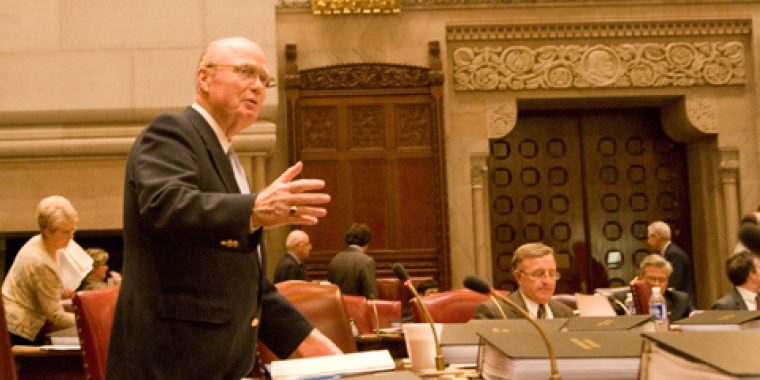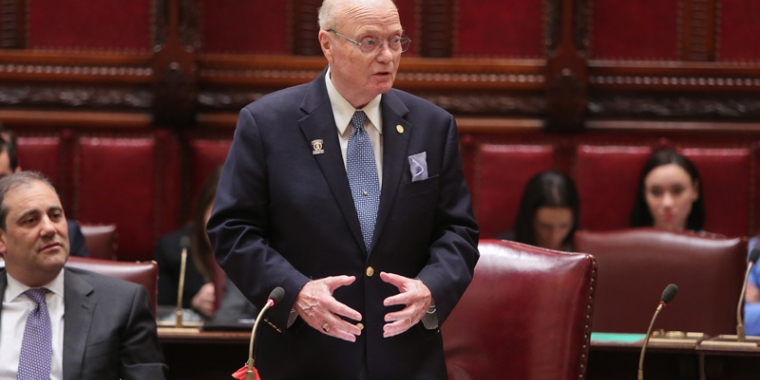
Senator Farley Reports Senate Passes Bills Targeting Organized Retail Crime
Hugh T. Farley
April 23, 2013
-
ISSUE:
- Crime

State Senator Hugh T. Farley (R, C, I - Schenectady) reports the New York State Senate recently passed a package of legislation that would crack down on anyone participating in Organized Retail Crime.
Senate bill 2926-A would allow any county in the state to prosecute someone who participates in a pattern of organized retail crimes when at least one of the offenses occurred within their jurisdiction. These highly intelligent criminals are well aware of the jurisdictional limitations under current law and avoid committing multiple offenses in the same county to avoid harsher penalties. This bill would give law enforcement officials another tool in curbing organized retail crime.
Senate bill 2927-A would increase the criminal penalties on anyone who uses fraudulent or counterfeit credit cards, account numbers, gift cards, or other devices to illegally gain access to money, goods, or services. In addition to harming retailers, these offenses also harm honest consumers when their account numbers are stolen. This bill cracks down on these thieves by increasing the criminal penalties for retail theft to a Class A misdemeanor, Class E felony, or Class D felony.
Senate bill 2928 recognizes the fact that organized retail thieves have been known to hide in retail stores and wait for all employees to leave before removing large amounts of goods through emergency exits or by having a "get-away" car parked outside an emergency exit. This bill would allow the courts to charge someone with grand larceny in the fourth degree for using an emergency exit in furtherance of organized retail crime.
Senate bill 2929 targets organized retail crime from the top by classifying the leading, organizing, supervising, financing or managing of an organized retail crime enterprise as a Class C felony.
Senate bill 2930 would create the new crime of "theft of retail merchandise with an aggregated value of $1,000," and changes the Penal Law to define this crime as "grand larceny in the fourth degree."
The bills were sent to the Assembly.
Share this Article or Press Release
Newsroom
Go to Newsroom


